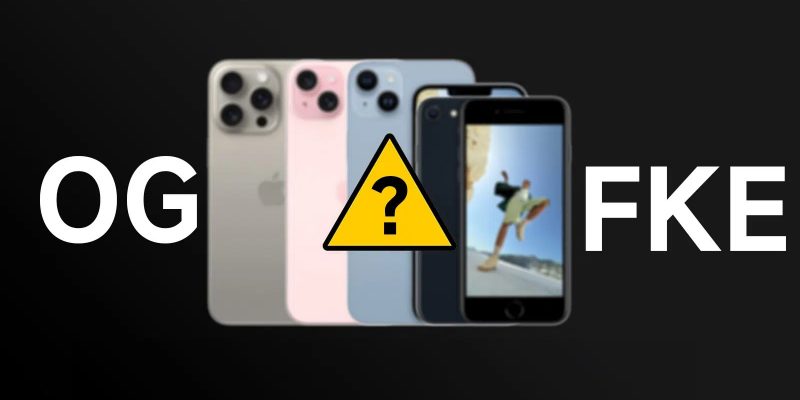Right in the heart of Zimbabwe’s capital city, Harare, a thriving industry has long taken root. Counterfeit phones popularly nicknamed “madubai”, cleverly disguised as authentic brands, are flooding the market, pulling in consumers with their affordability and sleek designs. The culture of faking it until you make it has enabled these kinds of businesses.
From fake iPhones to imitation Samsung, the continued purchase of such phones in Zimbabwe has catalysed its growth. Due to the high demand for smartphones Harare hustlers have seized the opportunity to capitalise on the trend by importing fake phones from countries like China and selling them to unsuspecting customers.
By Gamuchirai Mapako
However, in some cases, it is not all clients who are unsuspecting, some are purchasing the phones by choice to join the band wagon of people using expensive phones. The peer pressure to use big brands smartphones make the temptation of buying a fake one for appearance sake, irresistible.
The incredibly low prices of fake phones is what attracts some Zimbabweans. With most youths across the country struggling and unemployed, they cannot afford genuine smartphones. Duplicate phones offer a cheaper alternative, with prices often more than 50% lower than those of the authentic brands.
But there is a cost for the low prices. Fraudulent phones are prone to overheating, exploding, or catching fire since they are frequently constructed with inferior materials. They may also contain malware or other security threats, putting users’ personal data at risk.
Fake phones are still in high demand despite the dangers. Retailers are taking advantage of the trend by bringing in imitation phones and offering them for sale to customers via a variety of platforms, such as social media, marketplaces, and street sellers. Since many operators avoid paying taxes and disregard safety regulations, the informal character of the industry makes regulation challenging. However, with the current changes of taxing laws, these dealers might soon be held to account.
One thing is certain as the fight against fake phones goes on: the craze for bogus phones is a sign of a bigger issue, which is an economic crisis and limited access to reasonably priced technology. With all of the hazards and repercussions that come with it, the fake phone industry is probably going to keep growing until these fundamental problems are resolved.
Many have taken to social media to hilariously reveal the downsides of buying fake brands in ‘what I ordered versus what I got’ trend by showcasing the botched picture quality and phones that are iPhones from the outside but another brand when switched on.









Comments